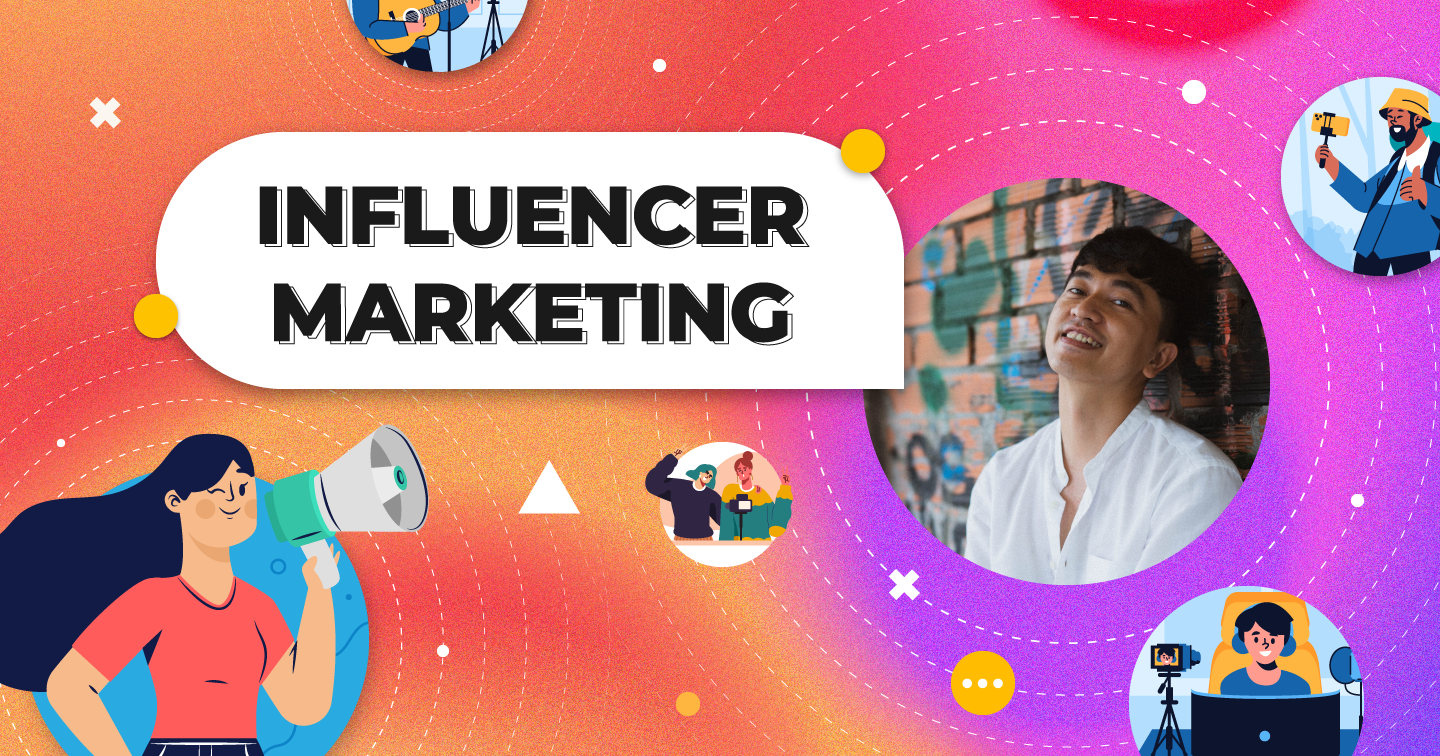Introduction
Influencer marketing has taken the advertising world by storm. What started as a few social media personalities promoting products has transformed into a multi-billion-dollar industry. The rapid growth of influencer marketing is reshaping how companies connect with their audiences, making it a crucial strategy in today’s digital marketing landscape.
In this blog post, we’ll explore the evolution of influencer marketing, its impact on consumer behavior and marketing strategies, and what the future holds for this revolutionary approach.
Evolution of Influencer Marketing
A Blast from the Past: Celebrity Endorsements
Before the age of Instagram stars and YouTube sensations, celebrity endorsements were the gold standard for advertising. Brands leveraged the fame and trust of Hollywood stars, athletes, and musicians to push their products. While effective, this method was often expensive and needed more personal touch than today’s consumers crave.
Enter the Social Media Influencer
The rise of social media platforms like Instagram, YouTube, and Tik Tok paved the way for a new breed of endorsers—social media influencers. Unlike traditional celebrities, these influencers built their followings by directly sharing their lives, passions, and expertise with their audience. This authentic connection made their endorsements more relatable and trustworthy.
Stats That Speak Volumes
- Growth: The influencer marketing industry was valued at $1.7 billion in 2016 and skyrocketed to $13.8 billion in 2021.
- Engagement: A study found that micro-influencers (those with 1,000 to 10,000 followers) have up to 60% higher engagement rates compared to celebrities.
Transformative Effects on Consumer Behavior
The Power to Shape Attitudes and Decisions
Influencers wield considerable power in shaping consumer attitudes and purchasing decisions. Thanks to the trust and rapport they’ve built with their followers, their recommendations often carry more weight than traditional advertisements.
The Psychology of Influence
At the heart of influencer marketing is psychology. Humans are social creatures who tend to mimic the behaviors and opinions of those they admire. When an influencer shares a product or service, their followers are more likely to consider it because it comes from a “trusted friend.”
Trust-Building Factors
- Authenticity: Influencers often share their genuine experiences, making their endorsements feel more authentic.
- Relatability: Followers see influencers as peers, making their recommendations more relatable.
Case Studies of Success
Case Study 1: Daniel Wellington
Daniel Wellington, a watch brand, grew exponentially by leveraging influencers on Instagram. The brand generated massive visibility and sales without traditional advertising by sending free watches to influencers and encouraging them to share photos.
Case Study 2: Fyre Festival
While the Fyre Festival is infamous for its disastrous execution, its initial marketing success must be addressed. Influencers created a massive buzz that sold thousands of tickets, showcasing the sheer power of influencer marketing.
Impact on Marketing Strategies
The Shift from Traditional Advertising
The rise of influencers has prompted brands to rethink their advertising strategies. Traditional methods like TV commercials and print ads are losing ground to more personalized, engaging forms of marketing.
New Collaboration Strategies
Brands are now adopting various influencer collaboration strategies to reach their target audience. These include:
- Sponsored Posts: Paying influencers to create content featuring their products.
- Brand Ambassadors: Forming long-term partnerships with influencers who become the face of the brand.
- Affiliate Marketing: Offering influencers a commission for every sale generated through their unique referral links.
Reaching Niche Audiences
One of the most significant advantages of influencer marketing is its ability to reach niche audiences. Influencers cater to specific interests and demographics, allowing brands to connect with consumers who are genuinely interested in their products.
Brand Engagement and the Future of Influencer Marketing
Engaging Consumers Effectively
Influencer marketing has proven to be highly effective in engaging consumers. Influencers create content that resonates with their audience, fostering a sense of community and loyalty.
Trends and Predictions
The future of influencer marketing looks promising, with several trends set to shape the industry:
- Micro and Nano-Influencers: Smaller influencers with highly engaged followers will continue to gain prominence.
- Video Content: Platforms like TikTok and Instagram Reels are driving the demand for short, engaging video content.
- AI and Data Analytics: Advanced tools will help brands identify the best influencers and measure campaign success more accurately.
The Importance of Authenticity and Transparency
As influencer marketing continues to grow, authenticity and transparency will be paramount. Consumers are becoming more discerning and can quickly spot insincere endorsements. Brands and influencers must prioritize genuine connections and transparent disclosures to maintain trust.
Conclusion
Influencer marketing has undeniably transformed consumer behavior, strategies, and brand engagement. Its ability to create authentic connections and reach niche audiences makes it a powerful tool for businesses looking to thrive in the digital age.
Are you ready to harness the power of influencer marketing for your brand? Start by understanding your audience, choosing the right influencers, and crafting compelling campaigns. Our team at [Your Company] is here to help if you need expert guidance.
Contact US
Ready to revolutionize your marketing strategy? Contact us today to learn how we can help you leverage influencer marketing to achieve your business goals!
FAQ
Q1. What is influencer marketing?
Influencer marketing involves collaborating with individuals with a significant social media following to promote products or services.
Q2. How does influencer marketing impact consumer behavior?
Influencer marketing shapes consumer behavior by leveraging influencers’ trust and relatability with their followers, influencing their purchasing decisions.
Q3. What are the benefits of using influencers in marketing strategies?
Benefits include reaching niche audiences, increased engagement, and creating authentic connections with consumers.
Q4. How can brands ensure authenticity in influencer marketing?
Brands can ensure authenticity by choosing influencers whose values align with theirs and encouraging genuine, transparent endorsements.
Q5. What are the future trends in influencer marketing?
Future trends include the rise of micro and nano-influencers, the increasing importance of video content, and the use of AI and data analytics to optimize campaigns.







